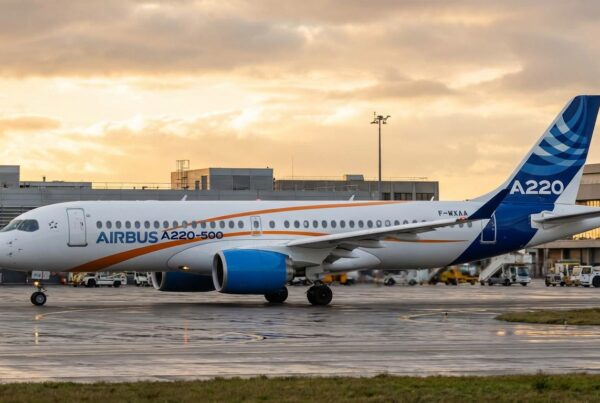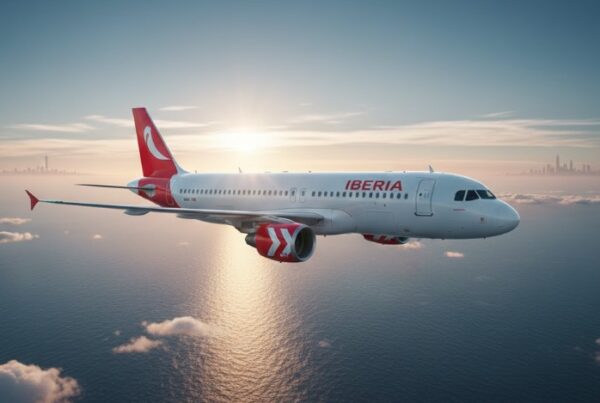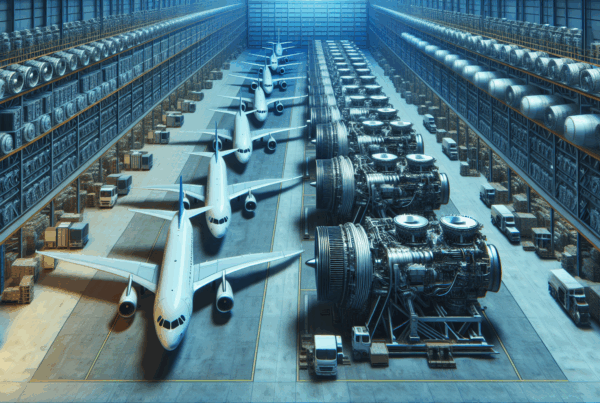The signing of a memorandum of understanding for 150 copies of theA321neo by flydubai marks a strategic turning point in the global aviation landscape. Beyond the sheer numbers - one of the largest single-aisle orders announced in recent years - this decision illustrates a shift in airline priorities: capacity, efficiency and network adaptability. From an industrial and commercial point of view, the deal sends a strong signal to aircraft manufacturers, leasing companies and financial markets about the future of long- and medium-haul single-aisle aircraft.
A strategic choice to diversify and densify the fleet
According to Flywest, flydubai has chosen theA321neo to diversify its fleet, which has historically focused on Boeing. This model offers a convincing combination of range and fuel economy, enabling the company to address high-density segments and longer regional corridors. L'A321neo is distinguished by its autonomy and capacity, making it ideally suited to the growing markets of the Middle East, Africa and Central Asia, while optimizing the use of available slots in overcrowded hubs.
Operational impacts for flydubai and its partners
The massive introduction ofA321neo will enable flydubai to increase frequency on existing routes and open up higher-density routes without systematically resorting to wide-body aircraft. This repositioning will have a direct impact on crew planning, maintenance and aircraft rotation logic. For partners and associated hubs, the arrival of larger but more fuel-efficient aircraft means greater fare competitiveness and greater capacity to capture point-to-point traffic.
Consequences for Airbus and the aerospace market
For Airbusthis order strengthens the commercial position of theA320neo Family and confirms the relevance of high-capacity single-aisle aircraft. An order of this size consolidates production rates and reassures suppliers about load visibility. In the medium term, this may translate into increased investment in assembly lines, process optimization and a reinforced focus on fuel efficiency programs, including the integration of sustainable aviation fuels (SAF) and aerodynamic improvements.
Leverage effect on innovation and the environment
By focusing onA321neoflydubai and Airbus are also committed to reducing emissions. The model offers significant gains in fuel consumption per passenger-kilometre over previous generations, an argument that has become central to the purchasing decisions of carbon-conscious airlines. According to Flywest, the order is accompanied by a strategic statement aimed at combining growth and environmental efficiency, which could encourage other carriers to accelerate fleet renewal.
Timetable, deliveries and financial stakes
Flywest reports that deliveries are expected from 2031 onwards, opening up a window of several years during which flydubai can plan its capacity and negotiate industrial and financial partnerships. The financial dimension of the operation is major: a commitment of this scale mobilizes capital, leasing arrangements and bank guarantees. For aircraft lessors and financing institutions, the order represents an investment opportunity, but also a challenge in terms of structuring contracts and marketing the aircraft.
Impact on competition and regional strategy
This strategic decision increases competition in the Gulf region and beyond, forcing other carriers to clarify their fleet plans and development priorities. L'A321neo becomes a differentiating tool, enabling us to serve high-demand corridors while keeping operating costs under control. For European and African hubs, the arrival of a major A321neo operator is changing the face of point-to-point flights, potentially offering new direct connections and an alternative to traditional transfers via major hubs.
Consequences for passengers and the network
For passengers, the impact will be increased service, more frequent service and, in many cases, improved cabin comfort thanks to new configurations and the efficiency of modern fittings. L'A321neo also enables airlines to offer optimized intermediate classes, responding to growing demand for direct flights between secondary cities and emerging metropolises.
In short, and according to Flywest, flydubai's historic order for 150 A321neo is not just a major commercial operation: it structures an industrial and commercial trajectory that will influence single-aisle competition, hub strategies and the energy transition of global air transport.




